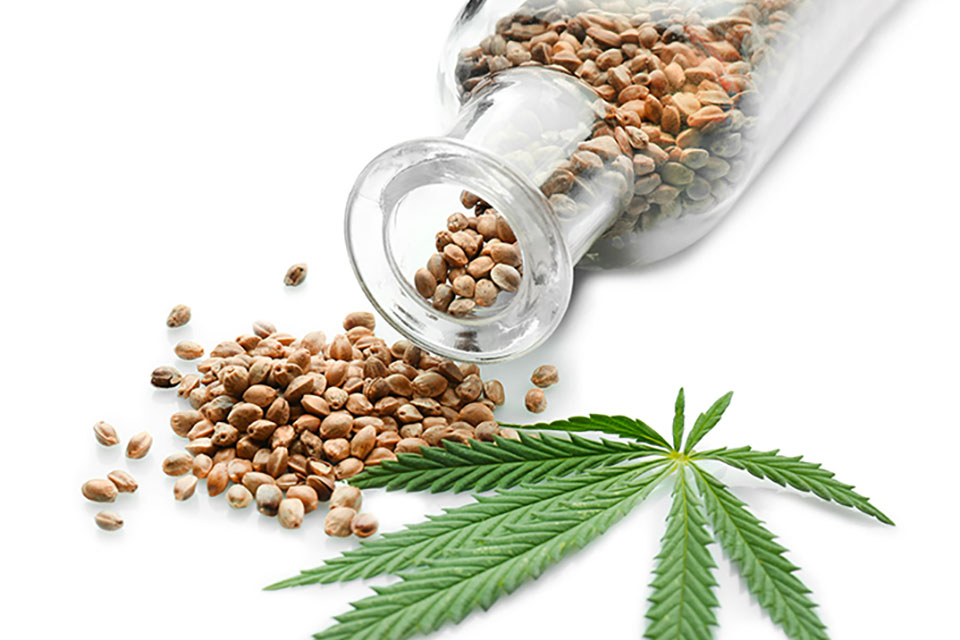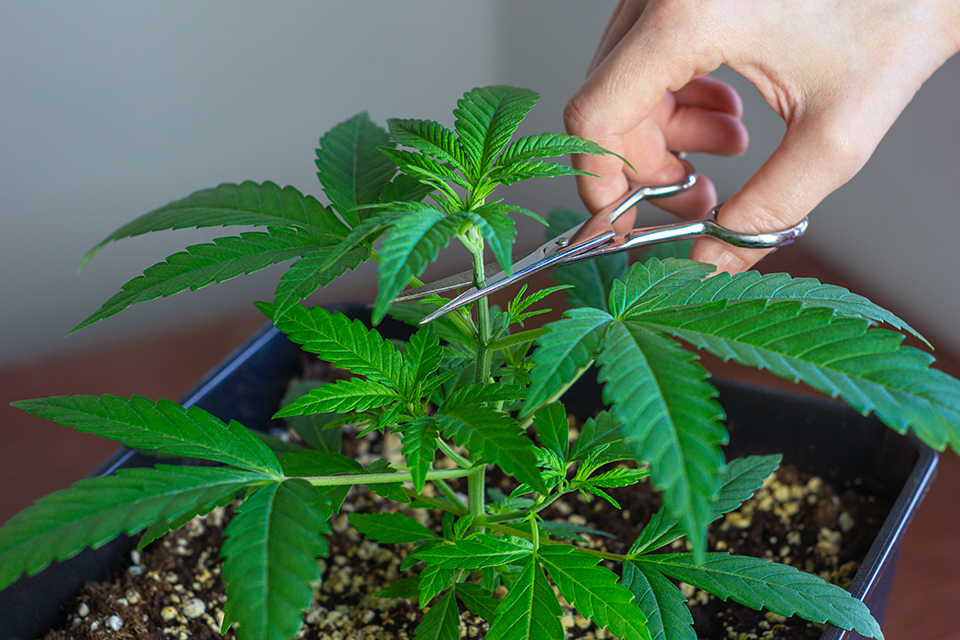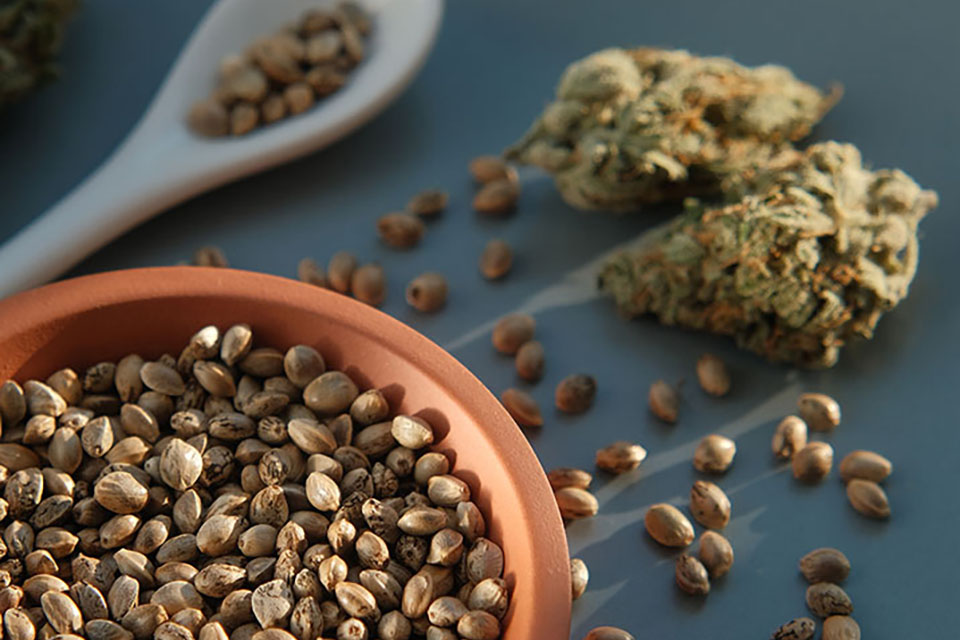
Buying seeds to germinate is always a leap of faith. You can’t tell by looking at them if they will grow, or if they are from the same strain or even the same species of plant the seller claimed they were. It is important to do some research, ask questions, and seek out reviews from previous customers before placing an order. Here are weed seed buyer’s guide with ten questions you should always ask.
1. Do you have a guaranteed germination rate?
The grower should test each batch of seeds for viability before offering it for sale. A reputable grower will guarantee a certain germination rate, such as 80%, and offer replacement seeds or money back if the seeds are not as viable as advertised. Buyers should not expect sellers to guarantee anything else about their seeds, and if they do, the buyer should be suspicious. All the seller can guarantee is their seeds are viable at the time of shipping and will germinate, namely, produce a root after the seed is soaked in water. What happens after that is entirely up to the buyer. If the buyer tries to grow them under unsuitable conditions, even robust and viable seeds will not produce thriving plants. Thus, if you see a grower guaranteeing each package of seeds will produce a certain yield of flowers or a certain number of mature plants, look elsewhere.
2. Do you provide advice on how to grow each of your strains?
The grower should have extensive experience with growing their own strains and should be able to suggest cultivation tips such as strain X does not do well when grown outdoors, strain Y needs a lot of water, and strain Z prefers some afternoon shade. If the grower just provides vague, generic advice about growing autoflowering and photoperiod strains, the buyer should wonder if this “grower” is just purchasing seeds from someone else and reselling them.
3. Can you describe the average flowering time and yield for each of your strains?
The grower should have a pretty good idea of how many days after germination autoflowering strains start to flower, approximately when photoperiod strains grown outdoors will start to flower, how long each strain takes to reach maturity, and an average yield for each strain. This information is particularly important for buyers who intend to grow photoperiod plants outside. If the buyer lives in an area with a fairly short growing season, they will not be able to produce any product if they purchase a strain that takes a long time to mature.
4. Can you provide a chemical analysis of the trichomes from each strain?
Reputable growers should be able to provide rough percentages of the various cannabinoids and major terpenes for each strain. Although these percentages vary somewhat by growing condition, they are primarily determined by the strain’s genetics. A buyer should be able to select a strain that has the precise ratio of THC to CBD that they desire. If they are looking for a strain rich in certain terpenes, the grower should be able to steer the buyer toward the appropriate strain.
5. Do you have information about the original sources, breeding and selection practices, and genetic lineage that led to each of your strains?
The grower should be able to provide a history for each strain, such as where they got it from originally, what traits they selected for, and whether they have engaged in hybridization or other breeding practices. Most buyers may not be very interested in this information, but they should ask anyway. If the grower cannot provide this information, it suggests they may be growing any random weed seed they can get their hands on and slapping fancy names on packages of seeds that contain generic weed rather than specific strains.
6. What shipping methods do you use?
Seeds generally do not require special shipping methods. They can be sent in the regular mail. However, some buyers may prefer discreet packaging that does not reveal to the world what is inside. Most experienced growers are fully aware of this and use plain packaging.
7. What payment methods do you accept? Is the payment method discreet?
Most growers these days accept a variety of standard payment methods. Many routinely use a nondescript name on the billing or credit card statement to preserve their clients’ confidentiality.
8. Are you aware of and compliant with the legal regulations in my local area, or is it up to the buyer to ensure legal compliance?
Regulations about growing weed at home for personal use are in flux. They seem to change practically every day. The buyer should exercise due diligence to ensure they are compliant with local regulations, but it may be reassuring to hear that the grower keeps up with the changing regulations and will advise a buyer before they purchase seeds that it may not be legal for them to sprout them at home or that they need to obtain a medical card or register with the state before germinating the seeds.
9. Do you offer loyalty programs with discounts for repeat buyers?
It’s always nice to save money. In addition, growers who offer loyalty programs almost certainly have a lot of repeat business. This means they tend to have happy customers, which should be reassuring to prospective buyers.
10. Do you provide any useful products other than seeds, such as fertilizers, product storage containers, and so forth?
One-stop shopping can save a buyer a lot of time. If they can order everything they might need at the same time that they order their seeds, they won’t have to waste time looking for the other products that they need.
Conclusion
Buying seeds is always a leap of faith, but if a buyer asks these questions and gets satisfactory answers, they are likely to have good results with their seeds because they have found a reputable grower. Contact us if you would like to ask us any questions before ordering our seeds.



